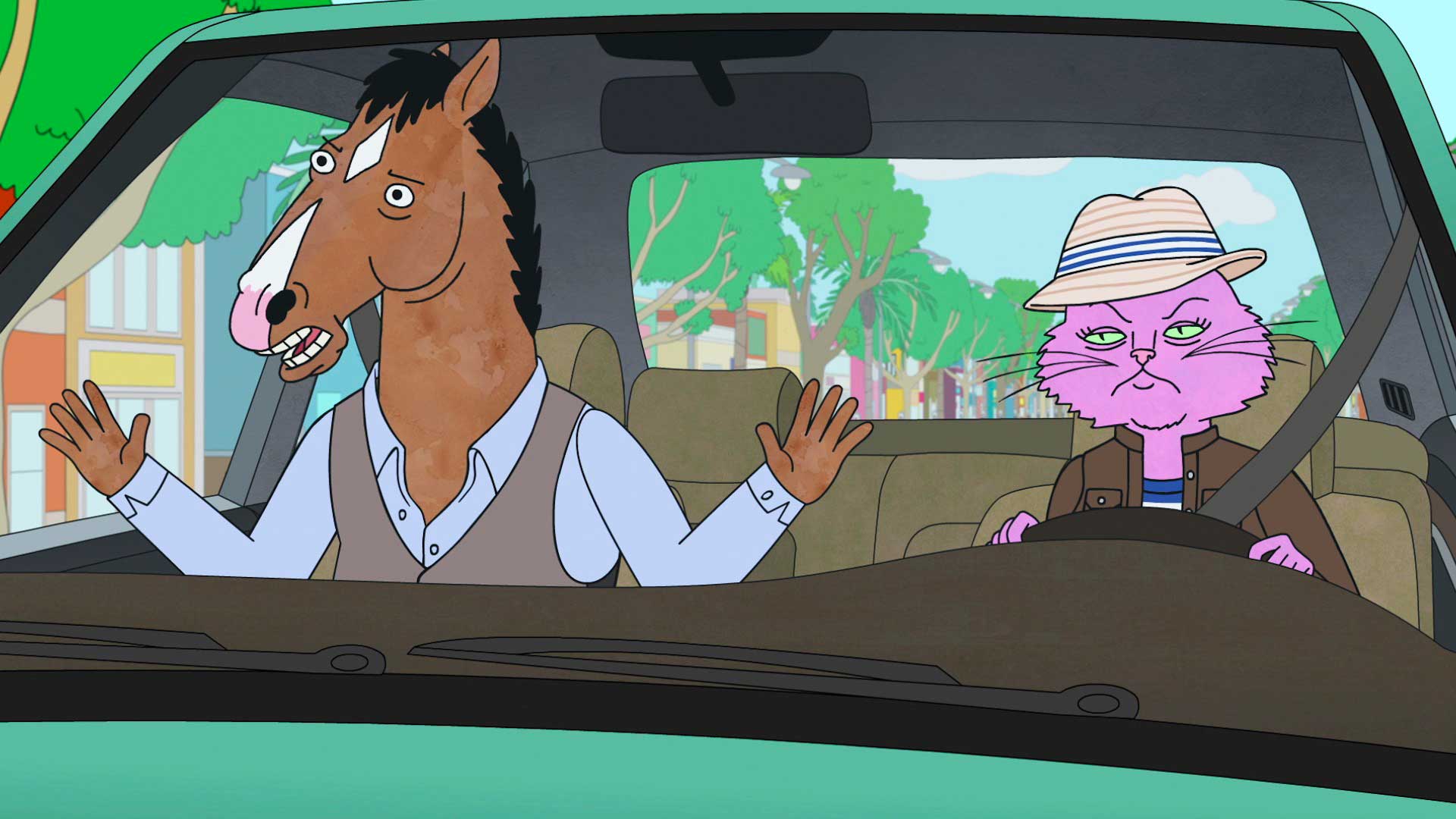
Sitcoms have been sad for years now: Consider the hip, glum resignation of Louie, the fear of growing up that haunts Girls and the painful self-laceration of Veep. But depression is different. As author Andrew Solomon put it, “The opposite of depression is not happiness, but vitality.” To be depressed is not to feel sad but to feel purposeless, at sea. That topic feels fit for only the darkest dramas–like Six Feet Under, with its seasons-long search for meaning among funeral directors.
But the world of streaming provides an arena for series that exceed traditional TV comedy’s weight limit. Shows on creatively adventurous streaming services illuminate depression by progressing almost as if the series themselves are depressed, slowly and in circles. For instance, Netflix’s animated series BoJack Horseman, whose third season launches July 22, reveals its soul gradually. It’s a detailed Hollywood satire with bright colors, quick quips and characters who are, for the most part, anthropomorphic creatures.
BoJack, a horse-man, has never come to terms with losing his fame as a ’90s sitcom star. He’s an emotionally frozen addict who mistreats his only real friend, a cat named Princess Carolyn. This season, his Oscar ambitions–for a buzzy biopic about Secretariat–force him to meet the sort of players who’d say phrases like buzzy biopic. An awards race isn’t the best place to get over his sense of meaninglessness.
Voicing BoJack and Carolyn, Will Arnett and Amy Sedaris deliver two of TV’s sharpest performances. They get that the show’s relentless puns–BoJack lands a profile in marine-mammal magazine Manatee Fair–don’t mask its darkness. They emphasize it–the desperate, gasping (though still funny!) jokes made by someone fighting, hard, to keep darkness at bay.
Casual, now in its second season on Hulu, loses the giddy but keeps the dark. It’s another L.A. story. (The city, with its promise of self-improvement, has also made an aptly ironic setting on the recent depressive comedies You’re the Worst and Togetherness.) Alex (Tommy Dewey) founded a dating site but spends most of his time with beer and bad liaisons. His housemate and sister Valerie (Michaela Watkins) uses work as a means of escape; she is a therapist who can hardly admit she’s sacrificed her adult life to a slacker sibling.
The characters of Casual and BoJack Horseman have given up on change, challenging TV’s imperative to generate plot and make us watch the next episode. Long stretches pass in stories about Valerie’s daughter or BoJack’s acquaintances–escapist coping mechanisms, not subplots. When we return to BoJack or Valerie, things have moved but incrementally. Or they’re off on a tangent, sometimes mundane, sometimes–as in a stunning episode in which BoJack finds both beauty and deeper isolation at an undersea film festival–remarkable.
These shows make their way by losing their way, alternately winding up in drudgery or magnificence. Both end their seasons with unforeshadowed moments of radical grace that declare that changing one’s life is, indeed, possible. After hours of journeying with these characters, these moments of hope feel good, and vital.
More Must-Reads from TIME
- How Donald Trump Won
- The Best Inventions of 2024
- Why Sleep Is the Key to Living Longer
- Robert Zemeckis Just Wants to Move You
- How to Break 8 Toxic Communication Habits
- Nicola Coughlan Bet on Herself—And Won
- Why Vinegar Is So Good for You
- Meet TIME's Newest Class of Next Generation Leaders
Contact us at letters@time.com